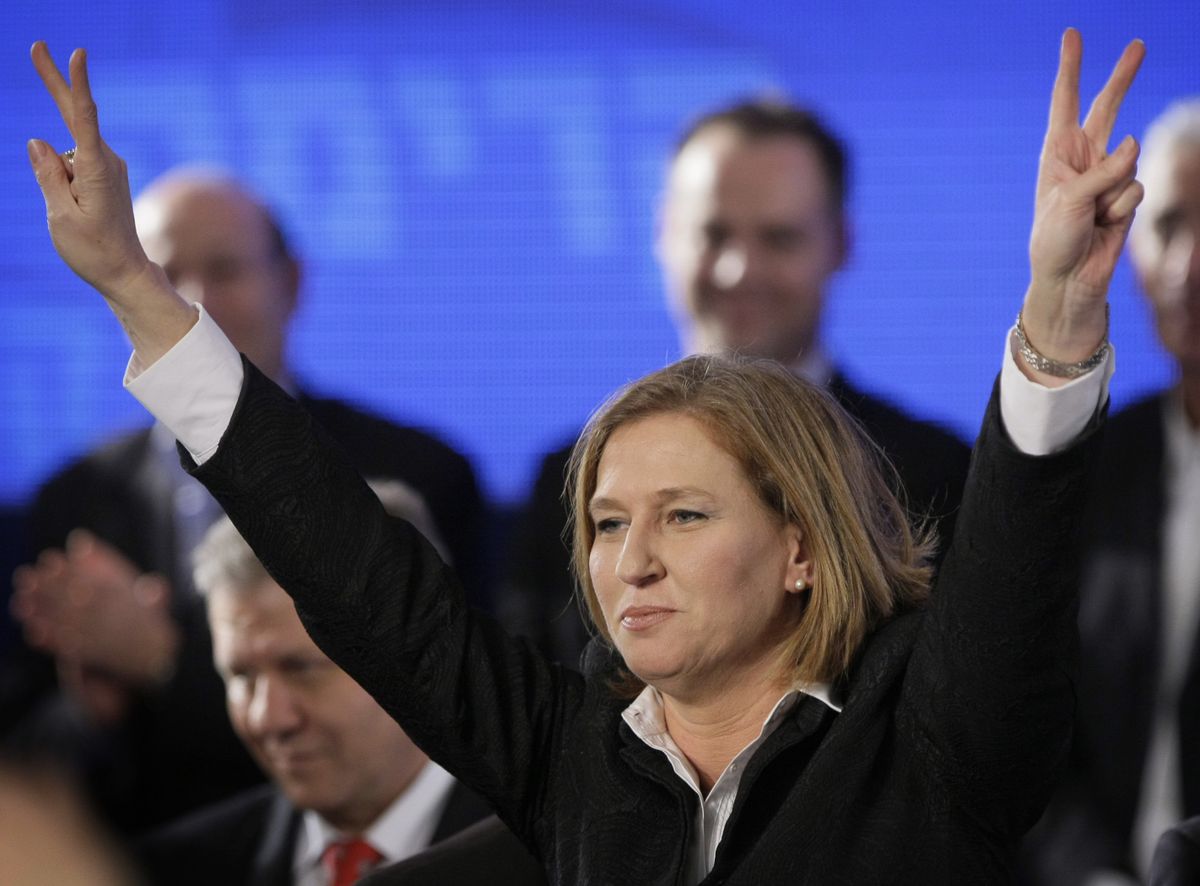Top Israeli candidates declare victory
Unclear which party will get first chance to form government

JERUSALEM – Israeli voters on Tuesday delivered a split decision in national elections, sparking competing claims by backers of opposition leader Benjamin Netanyahu and Foreign Minister Tzipi Livni over who will be the next prime minister.
Voters appeared to give Livni’s Kadima Party, which favors negotiations with the Palestinians, a slight and unexpected edge over Netanyahu’s Likud, which has been critical of peace talks, according to nearly complete returns and exit polls.
But the overall shift in Israel’s parliament, the Knesset, was sharply to the right. That could make it difficult for Livni to build the coalition she would need to govern, particularly if she intends to pursue U.S.-backed talks aimed at creating a Palestinian state.
Both candidates claimed victory, and the political jockeying was expected to intensify in the coming days. It will fall to President Shimon Peres to decide who gets first crack at forming a government – a tricky task in Israel’s fractious political culture. Traditionally, the president chooses the party that receives the most seats in the 120-member Israeli parliament, but he is not obligated to do so. Peres will now consult with all the parties to determine who has the best chance of creating a stable government.
The question of who will lead Israel could linger for weeks or more at a time when the nation faces threats from Hamas in Gaza, Hezbollah in Lebanon and an Iranian government with nuclear ambitions.
Netanyahu, prime minister during the late 1990s, delivered a victory speech just after midnight in which he told cheering supporters in Tel Aviv that “the people of Israel have spoken clearly and sharply. The national camp, headed by the Likud, has won a clear victory.”
Netanyahu signaled he intended to lead a coalition of parties that, like his own, take a hawkish stance toward Iran and believe that the creation of a Palestinian state would present a threat to Israeli security.
Livni, who would be Israel’s first female prime minister since Golda Meir led the country more than three decades ago, served as lead negotiator during last year’s unsuccessful negotiations with the Palestinians. Livni has favored continued efforts toward reaching a deal.
“Today the nation chose Kadima,” an energetic Livni declared to a crowd of backers, who serenaded her with chants of “the next prime minister.”
Livni said she would attempt to form a national unity government that includes parties across the political spectrum.
With votes from more than 90 percent of polling stations counted, Kadima had won an estimated 28 seats in the 120-member Israeli parliament. Netanyahu’s Likud garnered 27. Ultra-nationalist leader Avigdor Lieberman was projected to place third, with 16 seats. Defense Minister Ehud Barak, head of the center-left Labor Party that once dominated Israeli politics, was forecast to drop to fourth at 13 seats.